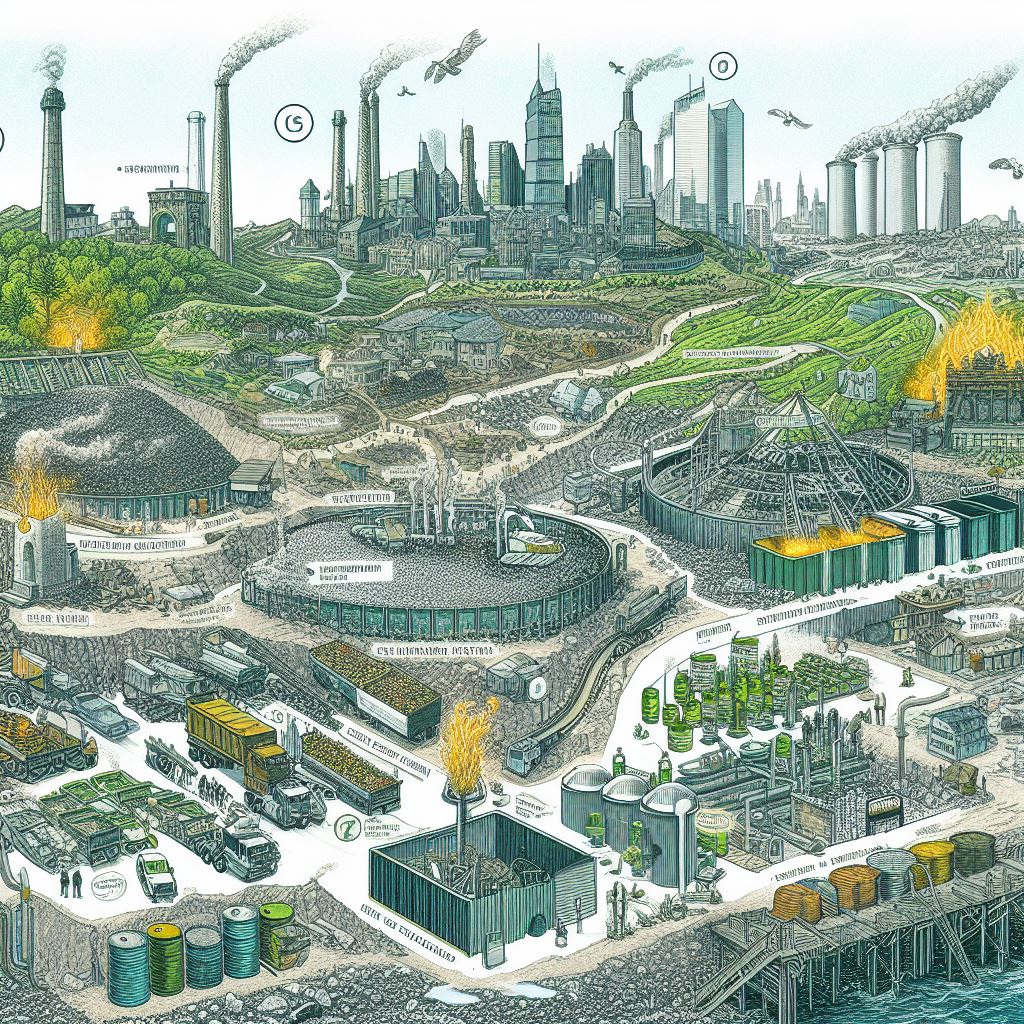
21st Century Landfill Design & Waste Management
Introduction
Waste management and landfill design have undergone significant transformations over the years, evolving to meet the demands and challenges of the 21st century. This article aims to provide an in-depth, authoritative, and comprehensive overview of the advancements in landfill design and sustainable waste management practices, focusing on innovations, environmental impacts, and future trends. The target audience for this research includes environmental engineers, urban planners, sustainability advocates, waste management professionals, and local government officials.
Historical Evolution of Landfill Design
The Genesis of Waste Disposal
Historically, waste disposal was rudimentary, with communities utilizing dumpsites and open burning. The evolution of landfill design has been marked by a growing understanding of environmental conservation and the need for sustainable refuse handling practices.
Transition to Modern Landfills
The transition to modern landfills was characterized by the integration of engineering principles and environmental science. This shift aimed to minimize the environmental impact of garbage disposal and optimize the longevity and functionality of landfills.
Current Challenges in Waste Management
Escalating Waste Generation
The 21st century has witnessed escalating levels of waste generation, driven by population growth, urbanization, and industrialization. These rising levels pose significant challenges to trash management systems globally, necessitating innovative and sustainable solutions.
Environmental and Societal Impacts
The improper handling of waste has severe consequences, including air and water pollution, soil contamination, and adverse health effects on communities. Addressing these impacts requires a holistic approach to waste treatment and management.
Modern Technologies and Methodologies in Landfill Design
Sustainable Waste Management Practices
Sustainable waste management practices are paramount in addressing the current challenges in waste management. These practices include:
- Waste segregation
- Recycling
- Composting
- Waste-to-energy technologies
Innovations in Waste Segregation and Recycling
Innovations in waste segregation and recycling have revolutionized waste management. Advanced sorting technologies enable the separation of recyclables from non-recyclables, enhancing the efficiency of recycling processes and reducing the volume of waste destined for landfills.
21st-Century Landfill Technologies
Modern landfill design techniques incorporate cutting-edge technologies to optimize landfill operations and mitigate environmental impacts. These technologies include:
- Leachate collection and treatment systems
- Gas collection and utilization systems
- Advanced liner systems
- Compaction and cover systems
Environmental and Societal Impacts of Waste Management
Impact on Ecosystems
The environmental impact of modern landfills is a critical consideration in landfill design. Improper waste management can lead to habitat destruction, loss of biodiversity, and contamination of water bodies.
Societal Considerations
The societal impacts of waste management encompass public health, community well-being, and economic implications. Sustainable waste management practices contribute to healthier communities, enhanced quality of life, and economic development through job creation and resource recovery.
Best Practices in Sustainable Waste Management
Waste Reduction and Minimization
One of the foundational principles of sustainable waste management is waste reduction and minimization, which involves implementing strategies to reduce waste generation at the source.
Recycling and Resource Recovery
Recycling and resource recovery are integral components of sustainability. These practices involve the conversion of waste materials into valuable products, conserving resources, and reducing environmental impacts.
Community Engagement and Education
Community engagement and education are crucial in fostering a culture of sustainability and environmental stewardship. Public awareness campaigns, educational programs, and community-based initiatives play a pivotal role in promoting sustainable waste management practices.
Future Trends and Predictions in Waste Management
Technological Advancements
The future of waste management is poised to witness groundbreaking technological advancements. Innovations in artificial intelligence, robotics, and biotechnology are expected to revolutionize waste segregation, recycling, and treatment.
Policy and Regulation
The evolution of waste management will be shaped by policy and regulatory developments. Stricter environmental regulations and sustainability standards will drive advancements in landfill design and waste management practices.
Circular Economy
The adoption of circular economy principles will redefine waste management. This approach emphasizes the importance of designing out waste and pollution, keeping products and materials in use, and regenerating natural systems.
Conclusion
Waste management and landfill design in the 21st century are characterized by innovations, sustainability, and a commitment to environmental conservation. The integration of modern technologies and methodologies has transformed waste management practices, mitigating environmental and societal impacts. The future holds promising prospects, with advancements in technology, policy developments, and the adoption of circular economy principles shaping the trajectory of waste management.
Engineering Topics Civil Engineering




